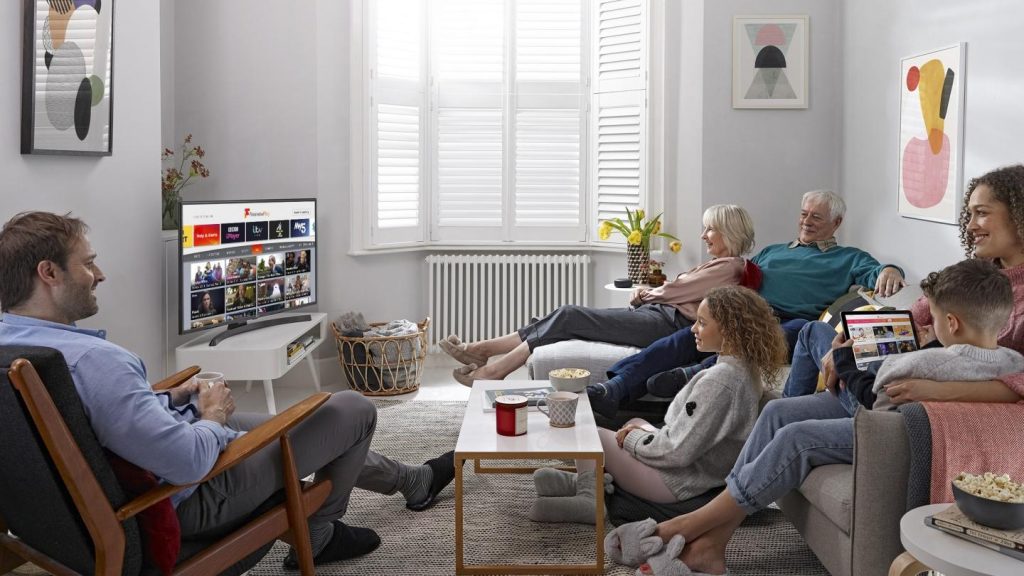Survey reveals UK’s most awkward viewing moments
February 9, 2023

BBFC research, by YouGov, surveyed 1,500 parents/caregivers and young people aged 12-19 to unveil the nation’s most awkward viewing moments.
The poll asked respondents about what causes them to feel awkward in the moments, how they react, what are the worst instances that spring to mind, and how they behave in those situations. The results highlight some of the uncomfortable interactions experienced by many families across the country.
According to the survey, one fifth of UK parents and young people are sitting down and watching films together with other family members of different ages at least once a week. When asked to rank the on-screen moments that cause people to feel awkward or embarrassed, nearly three quarters (66 per cent) of parents said sex scenes, followed by nudity and sexual references. Meanwhile, over half of young people (54 per cent) felt that kissing scenes during films were the most awkward, followed by sex scenes and nudity.
The research also examined consumer behaviours that unfold during these moments. It’s clear that such moments are particularly uncomfortable for younger adults, with nearly half (45 per cent) of the nation’s young people revealing that they sit in silence, or reach for their phone. On the other hand, parents are more likely to strike up a conversation about something else (26 per cent), with some even leaving the room to make a cup of tea (4 per cent), illustrating a relatable generational divide in behaviour. Unsurprisingly, making a joke appears to be a popular antidote amongst both UK parents and young people to try and combat any cringeworthy viewing experiences.
This news comes as the BBFC has unveiled an enhanced ratings feature on both their website and app. The need for this has been driven by an increased demand for content advice amongst UK consumers, with the YouGov data showing that over 80 per cent of parents and nearly 70 per cent of children said it would be helpful to know more about what a film contains to avoid any potential awkwardness.
The new visual display will appear on every new release that is submitted for cinema, alongside all of the major 2023 releases that have already been classified to help families choose content well. Additionally, the new feature will be applied to a backlog of previous family-friendly and blockbuster titles.
David Austin OBE, Chief Executive of the BBFC said: “This new feature is designed for busy parents. Imagine that you’re in a cinema queue and you’ve got no time to read even a couple of paragraphs about what’s in a film. We’re now showing the age rating with dots to indicate strength of content issues, so that parents can see what a film contains at a glance, and why it received a particular age rating.”
Recent research by the BBFC highlighted an increased demand in age ratings and content advice more broadly. Insights showed that 95 per cent of parents/caregivers of 4-to 12-year-olds check age ratings for the content their children watch, while over half (57 per cent) of teens aged 16-19 admitted to reviewing age ratings when deciding what to watch. In relation to content advice, 85 per cent of parents/caregivers of 4-to 15-year-olds and 71 per cent of teens aged 16-19 stated that it is useful for everyone and not just for parents.
